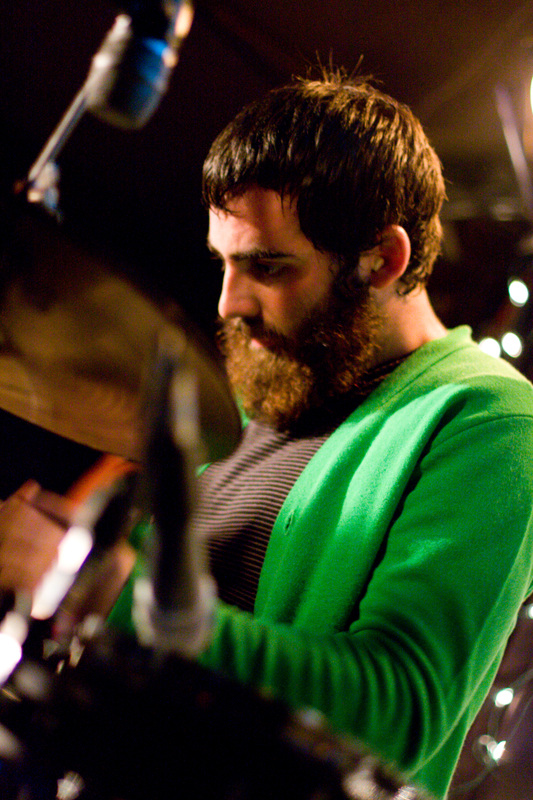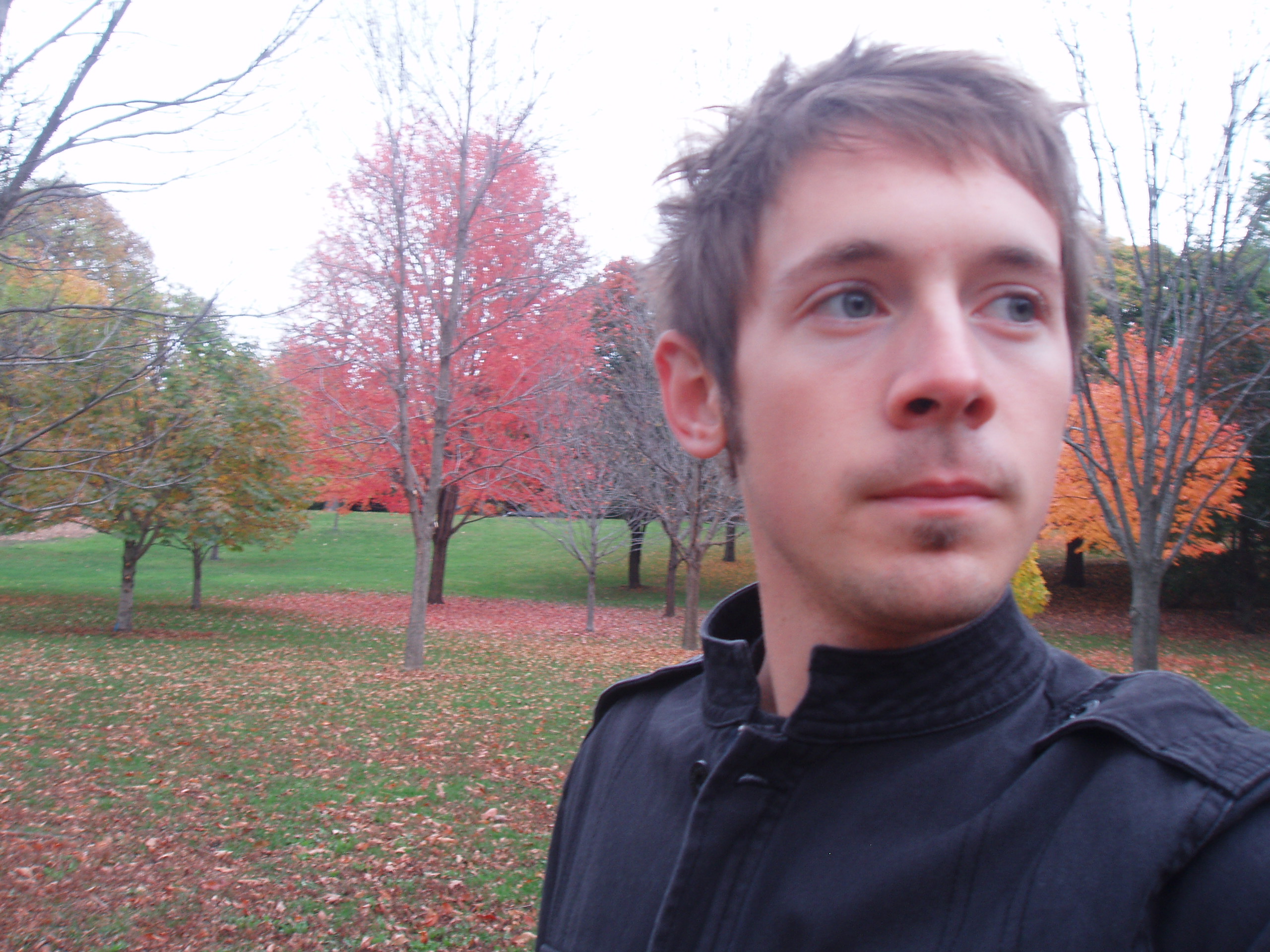Bend Your Ear
A defense of esoteric art by musician Joey Kantor, and an ode to the hard-won pleasures to be found in the complex melodies and improvisational riffs of contemporary jazz, with a nod to homegrown virtuosos of the style, the James Buckley Trio.



YOU NEVER REALLY KNOW WHAT PEOPLE MEAN WHEN THEY SAY “JAZZ.” Since its inception, jazz has been bursting with paradox: you can find virtuosic players in dive bars, the racially marginalized become art idols, high-brow bourgeois society types mingle with bohemian artists. And the music itself couples highly disciplined structures of theory with the expectation that those rules will be transcended through improvisation. Stylistically, jazz eludes hard definition as well: the genre includes both music readily accepted in the mainstream and music so esoteric it appeals only to an elite few.
In the 1920s, Louis Armstrong‘s early recordings scored jazz a place in the mainstream market, sparking a cultural revolution with their syncopated, catchy rhythms, small orchestration, and colloquial lyrics. In the 1940s, however, bebop had an opposite kind of effect. Bop greats turned their backs on the audience (both figuratively and literally), scornful of any trace of a crowd-pleasing agenda in their performances. Bop was art, not a commodity; it was cutting-edge, and there was little middle ground for listeners and musicians: you were in or you were out.
Engaging with the esoteric artistic experience, like seeing Bird doing bop in the 1940s and really trying to appreciate what his music was trying to say, demands effort. Mainstream audiences are, for the most part, hesitant to train themselves to relate to these more inwardly driven artistic experiences. Instead, we’ve become accustomed to more readily digestible art delivered through a more overt artist-audience dialogue, a dialogue that sounds like something you’d find in the world of advertising. If you’re worried about marketing, direct communion with the audience is paramount in guaranteeing brand longevity and visibility.
But when artists can redirect their attention from keeping people happy and start focusing their efforts on unrestrained creation, there’s a purer sort of candor that emerges between artist and audience. And, taking jazz as an example, if you’re willing to rise to the challenge presented by such inwardly focused art, if you’re willing to take it upon yourself to meet the artist halfway and more actively participate in the artist-audience dialogue, you’ll be rewarded with an experience that is both distinctly engaging and authentically inspired.
That’s why I saw the James Buckley Trio in January. As I entered the Kitty Kat Club in Minneapolis, everything I saw promised just that kind of intimate, candid music experience: the late start time, the tiny stage, the obstructed views, the group’s lack of fuss about addressing the audience. Without any introduction, the trio dove in with an angular, aggressive tune full of syncopated rhythms and complex harmonies, immediately clearing the air of any lingering questions about a likeness to Glenn Miller’s big band.
________________________________________________________
When artists can redirect their attention from keeping people happy and start focusing their efforts on unrestrained creation, there’s a purer sort of candor between artist and audience that emerges.
________________________________________________________
Throughout the set, the trio played unapologetically and assertively, as if the audience’s presence was an afterthought. There was a clear balance between the differing members’ musical personalities. Filling in for JT Bates on drums, drummer Peter Leggett effortlessly and clearly outlined downbeats with incredibly quick work on the ride cymbals. When in odd time signatures (which was often) Leggett’s drums never turned trudgy, and he expertly articulated changes in mood through the subtle differences of his attack on the rides rather than moving around the kit excessively. Leggett’s percussion provided a fulcrum for the visibly eccentric playing of the band’s namesake, James Buckley, on bass. Buckley dug into his bass lines with a vast palette of textures and characters, providing a stabilizing yet driving force that melded the trio’s distinct energies together.
Hovering above, Bryan Nichol’s swirling scales and extended complex harmonies helped create a musical canvas comparable to that of an abstract expressionist painting: the foreground, background, stops, starts, cadences, and other typical conventions of form all blurred. Instead of relaying distinct, recognizable musical phrases, the many busy parts converged and worked coherently and energetically to overwhelm you on a visceral level. And, like any piece by Pollock, the trio demonstrated that they could work both within and outside the vast tradition behind them.
One of my favorite moments of the set was the trio’s rendition of the original “Knowing and Losing.” Their performance of the piece tastefully toed the line between avant-garde esotericism and blissful, guilty-pleasure accessibility, indebted to modern pianist/composer Brad Mehldau for its combination of conventional harmonies, rock-tinged rhythms, and memorable melodies with more uninhibited, adventurous playing.
In its fusion of these disparate styles, the piece also brought to light the versatility and skill of the members on stage, each of whom plays adeptly across many musical styles. In fact, in addition to performing as the frontman for the trio, James Buckley plays with the electro-pop group Mystery Palace, and has played bass with numerous local indie rock artists; drummer Peter Leggett plays, among other things, with the Heiruspecs, a nationally celebrated hip-hop group. Accordingly, their playing shows instincts and sensibilities that extend beyond a single stylistic label.
________________________________________________________
Rather than standing in opposition, maybe the esoteric and the accessible sides of artistic creation are linked, each side feeding upon and sustaining the other.
________________________________________________________
Maybe indulging in uninhibited, crowdpleasing-be-damned creativity, whether in jazz or some other artistic endeavor, is the very thing that informs and inspires artists when they’re faced with the need to create more accessible art. Rather than standing in opposition, maybe the esoteric and the accessible sides of artistic creation are linked, each side feeding upon and sustaining the other.
As for The James Buckley Trio — they speak forcefully if you’re willing to ask what they have to say. But, the truth its, they’re not going to come find you or make you listen; you’ll have to seek them out yourself.
The James Buckley Trio will be releasing a new album, Knowing and Losing, on May 14 to follow up on their first record. You can find out more about the trio at myspace.com/jamesbuckley.
About the author: Joey Kantor is a composer, pianist, producer, and writer living in Minneapolis. A graduate of St. Olaf College in jazz piano studies, he takes great pleasure in the interdisciplinary, whether in music or a philosophical approach to art theory. He is passionate about language (music included) and has spent significant time abroad immersed in speaking the native language in Italy and Spain. As a pianist, he performs regularly and with the indie-rock group the Chris Koza Band, among others. Information on his performances, blogs, and travels can be found at the following sites: www.myspace.com/joeykantor, joeykantor.blogspot.com, and www.myspace.com/chriskozaband